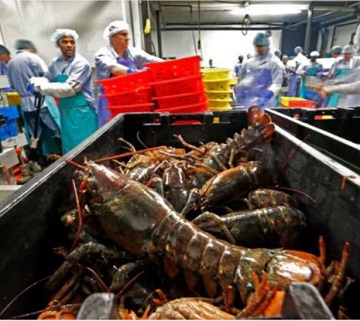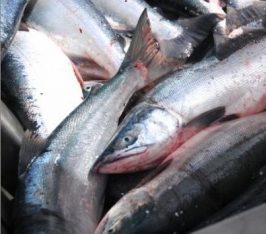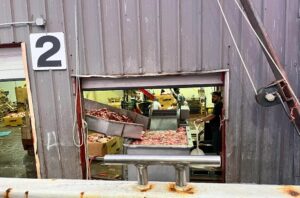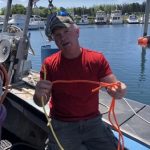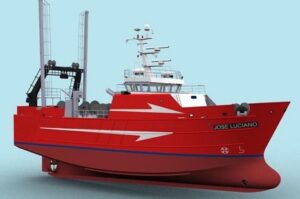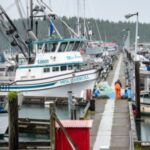Tag Archives: seafood processing
N.S. lobster facility temporarily halts processing, blames lower catches
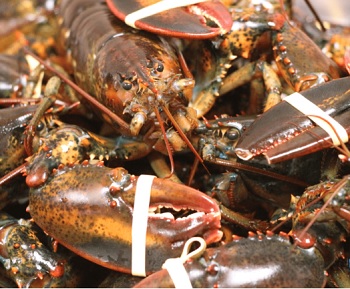 The Montreal-based owners of Riverside Lobster International at Meteghan, N.S., say the plant will not process lobster this fall and winter, citing lower catches in Maine and the Maritime provinces. “It’s an unfortunate situation, but right now that’s about all that we know. We’re not running this fall and there’s been no decision yet in terms of what’s going to happen for the spring,” “We’re seeing lower landings and not necessarily just in this area. We’re seeing it from Maine to New Brunswick to Nova Scotia. It’s affecting processing facilities and not just not just Riverside.” >>click to read<< 11:25
The Montreal-based owners of Riverside Lobster International at Meteghan, N.S., say the plant will not process lobster this fall and winter, citing lower catches in Maine and the Maritime provinces. “It’s an unfortunate situation, but right now that’s about all that we know. We’re not running this fall and there’s been no decision yet in terms of what’s going to happen for the spring,” “We’re seeing lower landings and not necessarily just in this area. We’re seeing it from Maine to New Brunswick to Nova Scotia. It’s affecting processing facilities and not just not just Riverside.” >>click to read<< 11:25
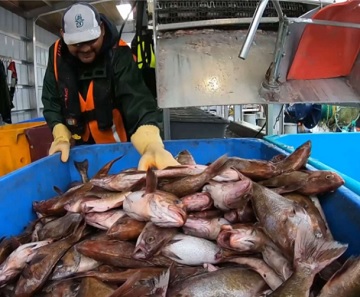
‘Looking at the years to come’: Pacific Seafood strategizes for the future
After coming off a remarkably successful year in 2021, Oregon’s commercial fishing industry is working through new challenges in 2022 and preparing for what’s ahead in 2023. In 2021, Oregon experienced its best crab year since 2013. Commercial fishing revenues jumped by 29% to $206 million, according to the Oregon Employment Department. In recent years, total fishing harvests have averaged about $165 million, making 2021 a year that stands out among the rest. Tyson Yeck, vice president for corporate key accounts with Pacific Seafood, said it was a phenomenal year for commercial fishing due to record-breaking prices and strong landings – meaning excellent catches. >click to read< 08:11
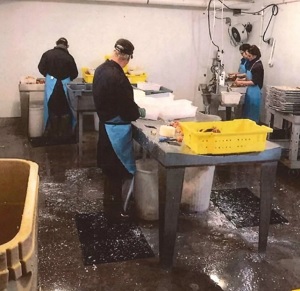
Seafood processor accuses Nova Scotia government of revoking licence over clerical error
The Nova Scotia government has postponed its decision to terminate the operating licences for a family-owned fish processing company,,, SeaBrook Fisheries says it’s being shut down as the result of a clerical error during succession planning. The company failed to notify the provincial Department of Fisheries and Aquaculture that control of the company had been passed to the son of the founders. The department earlier this year ordered the company’s fish buyers and fish processors licences to be terminated this Friday, effectively putting the company, which primarily processes lobster, out of business. SeaBrook was scheduled for an emergency hearing Wednesday,,, >click to read<, and Seafood processor accuses Nova Scotia government of revoking licence over clerical error – >click here< 14:17
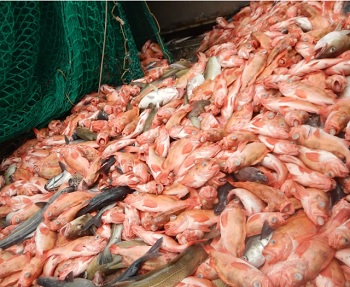
The NLGIDC Supports the Position of an Inshore Fisheries Coalition on the New Redfish Fishery
The Newfoundland and Labrador Groundfish Industry Development Council (NLGIDC) clearly supports the position of a coalition of inshore harvester associations, Indigenous nations, and those involved in seafood processing in Newfoundland & Labrador, Quebec and New Brunswick. This coalition issued a News Release on this important issue on October 14, 2021 that called on the Department of Fisheries and Oceans (DFO) to immediately suspend its consultation process on the rapidly growing redfish resource in the Gulf of St. Lawrence. >click to read< 09:57
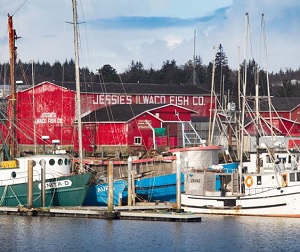
Court OKs deal to keep Jessie’s Ilwaco Fish Co. afloat
San Francisco-based Pucci Foods is positioned to take ownership after a ruling by Judge Goelz on Monday, Dec. 6, in Pacific County Superior Court in South Bend.,, With up to 65 employees depending on the time of year, Jessie’s has been one of the largest employers in Pacific County, according to the Washington State Employment Security Department. It was also Ilwaco’s biggest water customer. With the commercial Dungeness crab season looming, many were concerned about the possibility of losing a primary seafood processor ahead of the lucrative fishery and the impact of having fewer places for fishermen to deliver crab and compete for their business. >click to read< 07:57

DMF begins process of distributing federal CARES Act relief to fishing and seafood industries
The Division of Marine Fisheries has begun the process to distribute federal disaster relief that Congress and the President approved to mitigate the financial impacts to marine fisheries participants that have suffered at least a 35% loss of revenue due to the ongoing pandemic. In the days ahead, some Massachusetts permit holders in certain sectors will be receiving mailed applications. In March, the CARES Act provided $300 million of aid for the seafood industry with $27.8 million coming to Massachusetts, the third highest of all coastal states. The funds were allocated among the states based on the relative contributions to the economy of four distinct sectors: commercial fishing, marine aquaculture, seafood processing, and for-hire (party and charter boats) fishing businesses. >click to read< 10:14
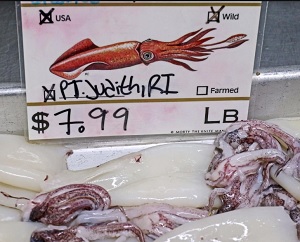
Most of R.I.’s calamari catch is processed in China. A local group wants to change that.
Also known as loligo, squid is Rhode Island’s most valuable fishery, worth about $28 million a year. More than 22 million pounds of squid are landed each year, most of it at the port of Galilee. But while the official appetizer of the Ocean State may arrive at a fishing port just a few miles away, most squid is shipped to the other side of the world, and all the way back again, before anyone gets to eat it. “One of the reasons that food policy councils exist, and there are some 350 food policy councils around the country, is to promote the growth and strength of local food systems,” she said. >click to read< 08:48
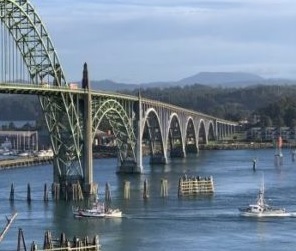
In Newport, a coronavirus outbreak spreads to local economy
Pacific Seafood ceased operations at all five of its Newport plants. The Oregon Health Authority said the outbreak is contained to Lincoln County and that risk to the public is low. But Newport Mayor Dean Sawyer said most of those who tested positive are locals. The town’s economy is hurting again without a major fish buyer and supplier. And businesses are shutting back down to try to slow the spread of the virus. “They live here, they work here, they’re community-based people,” Sawyer said. “And, of course, the problem with that is that people live and work with people that work in other industries.” >click to read< 12:16
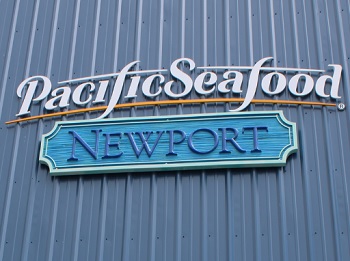
UPDATED: 124 cases reported – Pacific Seafood Coronavirus outbreak due to out-of-state workers, say former employees
James Nelson, a 10-year veteran at Pacific Seafood, said he had to quit his job May 8, “due to the COVID-19 virus,” and said he was forced to resign after expressing concern over the company bringing in “100+ migrant workers” from California to process seafood in Newport. Nelson said he would not put his family’s safety in jeopardy because implanting workers from a more contaminated area was too dangerous. He brought his concerns to managerial staff and said some had their own concerns, but they told him the higher-ups made the decisions. >click to read< 09:39
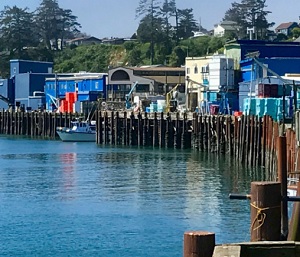 124 coronavirus cases reported at Pacific Seafood facilities in Newport – Pacific Seafood on Sunday disclosed that 124 of its employees and local contractors have tested positive for coronavirus in what is the second largest workplace outbreak of the virus in the state to date. >click to read< 10:43
124 coronavirus cases reported at Pacific Seafood facilities in Newport – Pacific Seafood on Sunday disclosed that 124 of its employees and local contractors have tested positive for coronavirus in what is the second largest workplace outbreak of the virus in the state to date. >click to read< 10:43
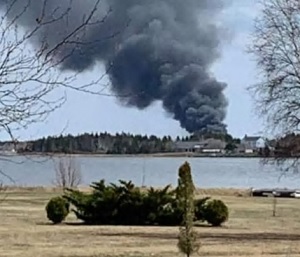
UPDATED – New Brunswick: ‘This is terrible’, Val-Comeau seafood processing plant goes up in flames
A seafood processing plant in northeastern New Brunswick has gone up in flames Thursday afternoon. A plume of thick black smoke could be seen coming from Les Pêcheries de Chez Nous facility in Val-Comeau, a small coastal community now part of the regional municipality of Tracadie. Emmaneul Moyen, a representative of the Maritime Fishermen’s Union, told Radio-Canada it’s devastating news. He said about 100 local fishermen sell their catch to the plant, which had been operating at full capacity. “We are probably talking about 250 workers,” he said. >click to read the updated story< 16:47
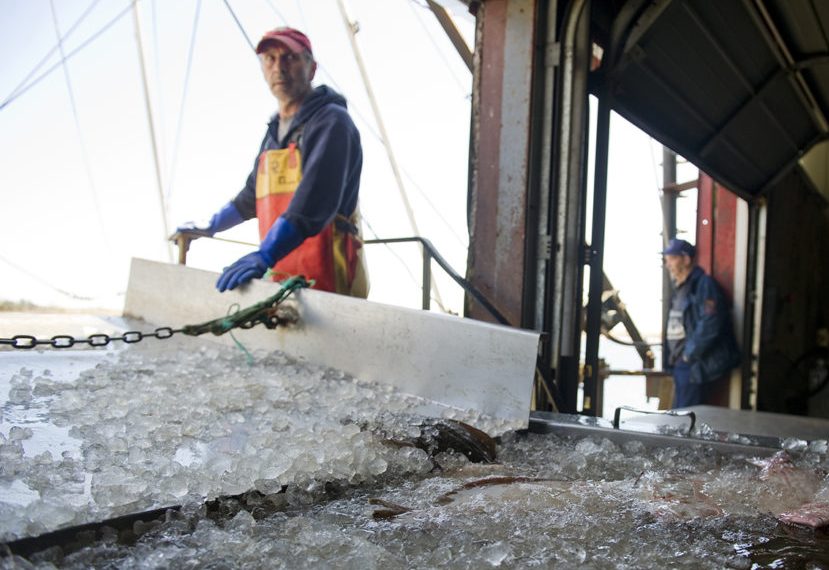
Seafood Processing: How robots can help local fisheries
New England is known for being an excellent source of lobster and other seafood. But while fishing is done locally, much of the processing is outsourced to other countries.,,, Northeastern University professor Taskin Padir is hoping to change that. He was selected to lead a new project to bring collaborative robots developed at the university into processing plants at America’s busiest fishing port, located in New Bedford, Massachusetts. The goal, he said, is to increase production and efficiency, keep workers safe, and stimulate local job growth. Called Collaborative Robotics to Foster Innovation in Seafood Handling, or the FISH project, this is one of 14 robotics-related challenges recently announced Advanced Robotics for Manufacturing (ARM). <click to read<17:09
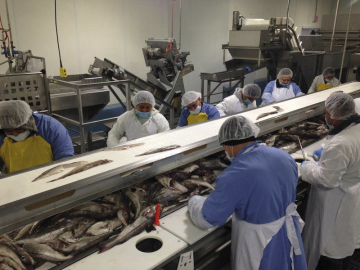
Word of Gloucester Seafood Processing reopening catches city leaders by surprise!
The comments last week by the founder of the Mazzetta Company that the seafood processor will resume processing fresh fish at its largely dormant Gloucester Seafood Processing plant caught many by surprise — including city officials. Tom Mazzetta, the chief executive officer of the Illinois-based seafood conglomerate that bears his family’s name, told a respected fishing website that the Gloucester Seafood Processing plant in the Blackburn Industrial Park will resume operations before the year is out. >click to read<23:15

Kodiak: Fishermen aspire to enter world of seafood processing
For some fishermen, moving into the processing world is one way to build their prospects. But before that can happen, they need to get the required certification. A few seafood processors and would-be processors are doing that right now in the City of Kodiak. They’re taking a two-day Hazard Analysis Critical Control Point or HACCP class, which covers possible seafood hazards. It’s one of a handful of classes Alaska Sea Grant holds annually around the state. >click to read< 12:13

Seafood giant back in Warrenton
Mike Brown, like many in the seafood processing industry, is used to old buildings — massive complexes from another generation that have seen countless fish and hundreds of filleters come and go over the decades. But as general manager of Pacific Seafood Group’s rebuilt Warrenton facility, Brown is about to be in charge of a brand-new building. The West Coast seafood processing giant is in the middle of rebuilding after a fire destroyed the original plant in 2013. Construction began last year, click here to read the story 20:37
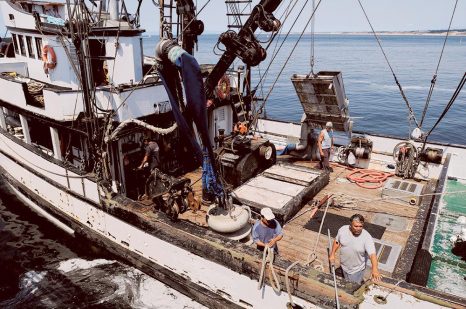
California’s confidential fishing rights leave millions of dollars in mystery.
Over years of writing about and working in the fishing industry, I (Nick Rahaim) have often found it difficult to substantiate many things told to me – often as gospel – on fishing boats and in salty bars. Many of those stories aren’t of much consequence – that most fishermen found dead in the water have their fly unzipped, or that whistling in the wheelhouse will blow up a storm. But another story represented enough potential injustice that I had to learn more. A year ago, while working as a fisherman and freelance journalist in Alaska, I heard California seafood companies that buy and sell product were buying up squid permits – permanent fishing rights, limited in number, bought and sold on a market – from independent fishermen. The implication: They were trying to corner the market, creating squid cartels where they could control prices paid to fishermen, causing ripples down the supply chain to the consumer. (More on the system of fishing rights later.) Read the story here 10:45
Mazzetta Company LLC Processing plan gets wide support
![]() City officials said Friday they’re excited to share the news that an Illinois-based seafood processing company is firming up plans to bring a plant with up to 225 jobs to Gloucester’s Blackburn Industrial Park. Read more@GDT 11:40
City officials said Friday they’re excited to share the news that an Illinois-based seafood processing company is firming up plans to bring a plant with up to 225 jobs to Gloucester’s Blackburn Industrial Park. Read more@GDT 11:40






